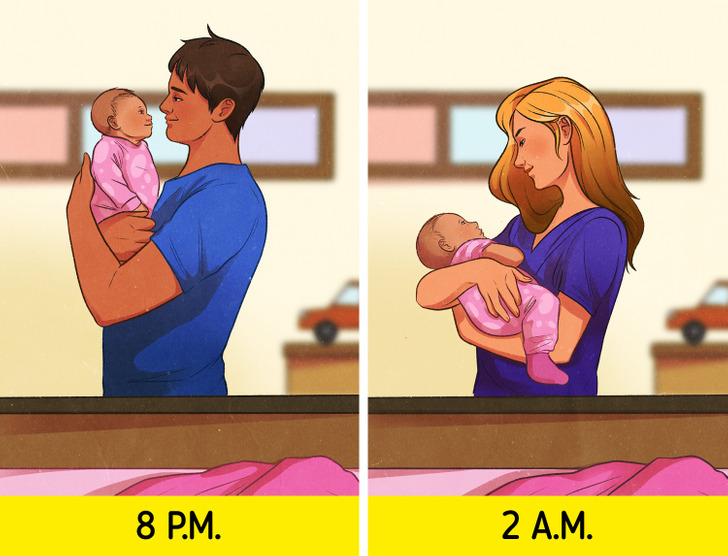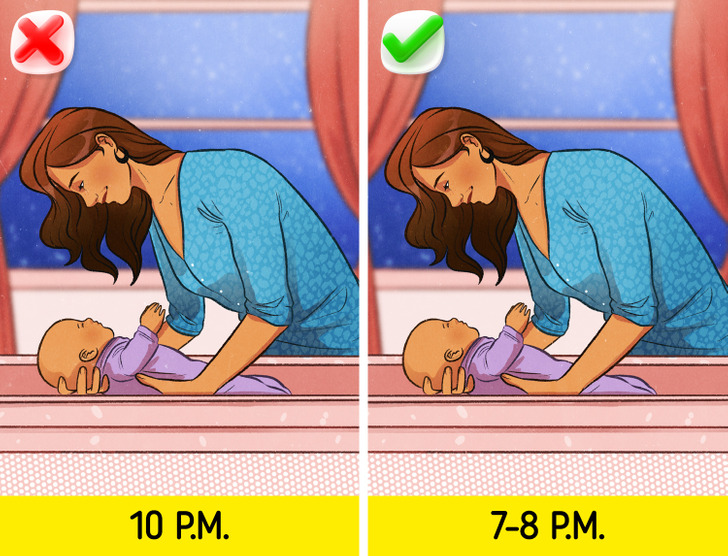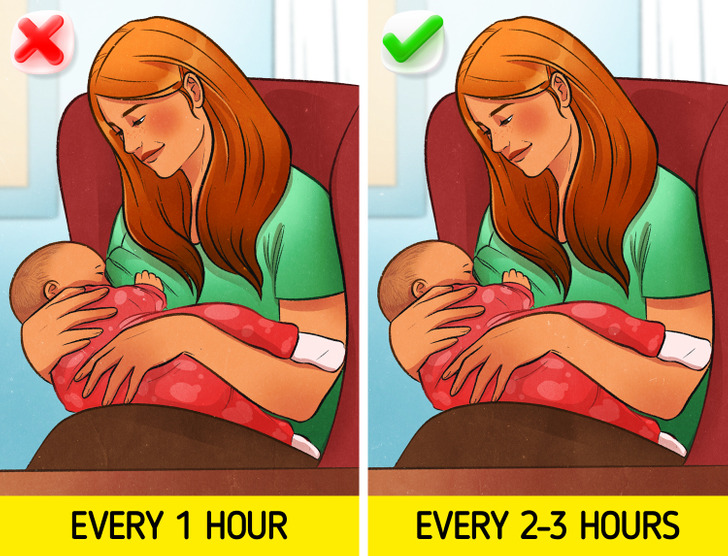15 Heart-Centered Moments of Human Kindness That Only Happen Once in a Blue Moon


It can be very stressful for a parent who doesn’t know what to do when their baby cries. But there is always a solution to helping your baby sleep through the night. While newborns sleep 16+ hours a day, babies of 3-4 months sleep in the course of 5 hours. You can start by having your baby sleep in your room in its crib, following a consistent bedtime routine. This way, you may get to fit in those extra 2 hours of sleep that you missed.
Bright Side is offering up a list of tips and what to avoid when putting your fidgety baby to sleep.

We all have a tendency to wake up in the middle of the night, even our babies. If your baby is asleep and you put them in the crib, they may start waking up during the night because they won’t be able to recognize their surroundings. Then they will need some soothing to get back to sleep.
The solution is to put them in the crib while they are semi-awake and dozy. Not only will this prevent you from waking up in the night, but it may also teach your baby to soothe themselves to sleep.

The phrase, “Teamwork makes the dream work,” really starts to kick in when you have a baby. The best way to get continuous sleep for you and your partner is to take turns with your baby — if you’re a night owl, it may be best to leave your partner with the baby in the morning, or vice versa.

Babies cry, it’s normal. But crying for reasons such as losing their pacifier can be upsetting. Simply place a couple of them in the corner of the baby’s crib, and when they lose one throughout the night, grab their tiny hand and place it in the same corner. It may take about a week for your baby to learn how to find their pacifier.

Sometimes, the “logic” of things isn’t always correct. If your baby stays up late, that doesn’t mean they’ll sleep longer. It’s quite the opposite — your baby will actually be more tired this way. It may take longer for them to fall asleep and they can wake up more frequently throughout the night.
However, it comes with age. While a newborn will likely go to bed later, a baby of 3 to 4 months is prepared to go to bed around 7 p.m to 8 p.m.

It’s important to feed your baby enough so they can have a good night’s sleep. In the first 8 weeks, feeding them every 2 to 3 hours is ideal, and if they want to eat every hour then they are not eating enough during each feeding session.
For example, if you breastfeed your baby, keep track of how many minutes they eat. If they eat longer at night and less during the day, then this is called snacking, and it should be avoided.

The smell of lavender oil may help the parent feel more relaxed and calm to act in ways that will also make their baby calm. The parent will caress, touch, and smile at their baby more this way, and the baby may look at their parent more often, cry less, and get deep, quality sleep.

A baby should not be put in a car seat when they aren’t sleeping or traveling because they cannot move and stretch this way. They rely on leaning on their car seat, which can create a soft spot on their tiny head.
It goes way deeper than that as well — if you are constantly carrying your baby in a car seat (outside of the car), there is less of a chance to interact with them, causing language delays. Instead, carry them or lay them on your stomach.
Will you change some of your habits with your baby after reading this list? Do you have anything else to add?











